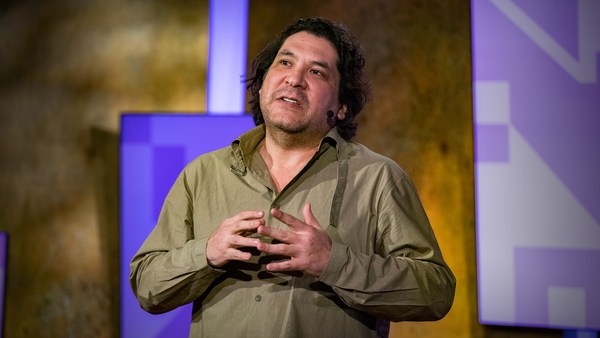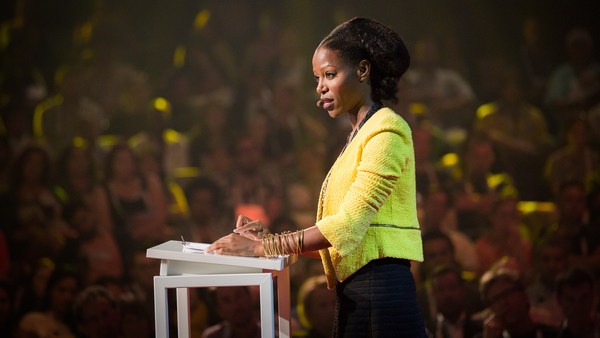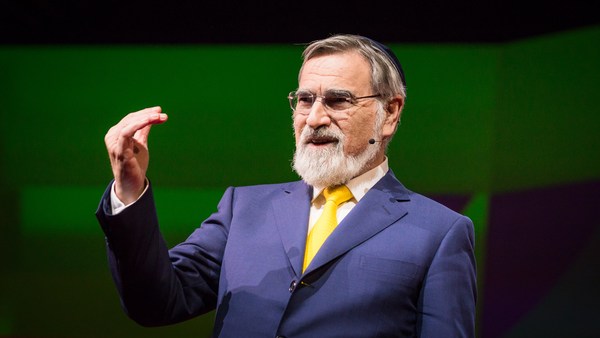Holding hands, we watched the door, boring holes in it with our intense stares. My siblings and I were waiting for our mom to come back from the hospital, where my grandmother was having surgery for advanced cancer. Finally, the doors opened, and my mom said, "She didn't survive the operation." She burst into tears and between sobs, said, "Your grandmother's last wish was to be buried in her home, in Korea."
I was only 12 when this happened, and when I recovered from the initial shock, my mom's words echoed in my ears: Grandma wanted to be buried in her "home." We had emigrated from Korea to Argentina six years earlier. We knew no Spanish, or how we were going to make a living. We were immigrants in a new land, where we had lost everything on account of a scam, and we had worked very hard to rebuild our lives. That's why I couldn't imagine that after so many years, our home would still be Korea. It made me wonder: Where do I want to be buried someday? Where is my home? To be honest, I didn't have an answer to these questions, and that really worried me.
This episode triggered an existential search for my identity. I was born in Korea, the land of kimchi, and I grew up in Argentina, where there was always meat on the table; truly, it would not be surprising if today I were 80 percent cow.
(Laughter)
I was educated in the United States, where I became addicted to peanut butter. During childhood, I honestly felt very Argentine, but my appearance always gave me away.
I remember the first day of high school, my literature teacher entered the classroom, carefully looked at everyone, stopped in front of me and prophesized: "You won't pass this class unless you get a private tutor." But by then, I was speaking perfect Spanish -- better than I speak it now, I think, because it's been years since I left. And I felt forced to choose between my Argentine identity and my Korean one. Apparently, I couldn't be both, and I had to abandon my previous identity in order to adopt the new one.
So when I turned 18, I went to Korea to see if I could find this home that I could call my place in the world. In Korea, people assumed I was a foreigner, and they'd ask me, “Why do you speak Korean with a Spanish accent?”
(Laughter)
Apparently, I was too Korean to be Argentine, but too Argentine to be Korean. Realizing that, honestly, was very transformative. I decided not to try and change what I can't change and accept it. In fact, I was inspired by one of my grandmother's stories.
My grandmother never learned Spanish, but she was very independent and managed on her own. She would walk all around the streets of Buenos Aires, even in the most dangerous areas. One afternoon, she was attacked and threatened at gunpoint. They put the gun to her head and said, "The ring! The ring! Give me your ring!" They wanted her gold ring, which was her most prized possession back then. Well, my grandmother looked the criminal in the eyes, sat down on the sidewalk, and a peaceful smile came onto her face. My grandmother thought they were saying "anyó" instead of "ring," which in Korean, means "sit down."
(Laughter)
She thought, "Well, it's the last day of my life, so if I'm leaving, let's leave with a smile." She gracefully accepted her fate. Imagine the face of her attacker -- he must have thought my poor grandmother was a creature from another planet, and he took off running, bewildered.
That experience inspired me to accept my new reality with optimism. I hadn't managed to find that place in the world that I could call home. But then I wondered: How many Koreans with Latino mannerisms that speak Korean with a Spanish accent are there in the world? Maybe it could be an advantage, a useful tool, a way to stand out in a world where things are changing very quickly, where qualities and abilities can sometimes become obsolete from one day to the next.
So I decided not to focus on having 100 percent in common with people I met, Instead, I realized that I was frequently the only intersection between groups of people that didn't have much in common and that were even, at times, in conflict among themselves. So with this new perspective, I proudly accepted the different versions of myself and even, at times, allowed me to reinvent myself.
For example, I have to confess that in high school I was what we call a bookworm -- I had thick glasses, had no fashion sense whatsoever. What's more, I think the only reason I had friends was because I let them copy my homework every morning. That's true. Once I went to college, I was able to find a new identity, and the "worm" became a popular girl. OK, granted, it was MIT, so I don't think the bar was very high -- (Laughter) but at least I could maintain that identity. I changed majors so many times that my advisor told me that instead of chemical engineering, I should get a degree in random studies.
(Laughter)
Over the years, I've had a lot of identities: academic, scientist, social innovator, inventor entrepreneur, investor; most recently, networker, teacher and, most importantly, a mother, three years ago. I was so confused that even my accent couldn't decide who it was. My friends would joke and say that it was of such an unknown origin that I was the only person in the world who spoke this language, "Rebecanese."
Reinventing oneself can be hard. For example, when I was finishing my doctorate, I was bitten by the entrepreneurship bug. So suddenly, writing a 400-page thesis in an office in a basement seemed less appealing than starting my own company. So I had the job of telling this to my parents, who are traditional Asian immigrants -- whereas my siblings and I are the first to attend college -- in other words, that education is the most important thing in my family. You can imagine the reaction awaiting me upon telling my parents I was abandoning my studies. So I went to my parents, but with a secret weapon: a chart showing the average income of people who graduated with doctorates from Stanford compared to the average incomes of Stanford students who abandoned their thesis or doctorate. Now, I have to confess that the chart was really skewed by the founders of Google.
(Laughter)
My mom looked at the chart and without blinking, said, "I've always said you should follow your heart."
(Laughter)
My search for identity these days isn't about finding my tribe. Really, it's about finding and accepting all the different possible permutations of myself. It's about cultivating diversity within myself, instead of just around me. Currently, my kids are three years old and six months old, just turned, and they were born into three nationalities and four languages -- and I need to clarify that I married a Danish guy, in case I didn't have enough cultural confusion in my life, I ended up marrying a Viking. I think my kids will be the only Vikings that won't be able to grow a beard when they grow up. It'll be hard for them.
(Laughter)
I hope that my kids will have a multidimensionality that works for them; that they see it as a tool for creating connections in a world that's every day more global and also more divided. I hope that instead of feeling anxious and worried that they don't fit into a predefined box, that they can feel free to experiment and take control of their life narratives in their own way. I hope they can use the unique combination of values, cultures, languages and abilities that they have to create a world where their identities are used to unite peoples and people, and not as an excuse to generate intolerance -- because identity can be a double-edged sword: we can use it to differentiate ourselves from others, or to find points of connection. And when we accept our multiplicity, we amplify this power of connection and forget about the differences a little.
Now, back to my grandmother: her last wish was also her final life lesson for me. It turns out that after many years, I found out why she wanted to be buried in Korea. It wasn't a question of patriotism or nationality. She wanted to rest in peace next to her son, who had died many years before she emigrated to Argentina.
My grandmother lived a life full of deep connections and indestructible ties, including those separated by distances or oceans or even death. She had many identities: matriarch, farmer, businesswoman, Korean, immigrant, mother, grandmother. With her last wish, she taught me that finding our home isn't about putting down roots somewhere. It's about intertwining those roots with the roots of others who enrich our lives.
Thank you.
(Applause)


